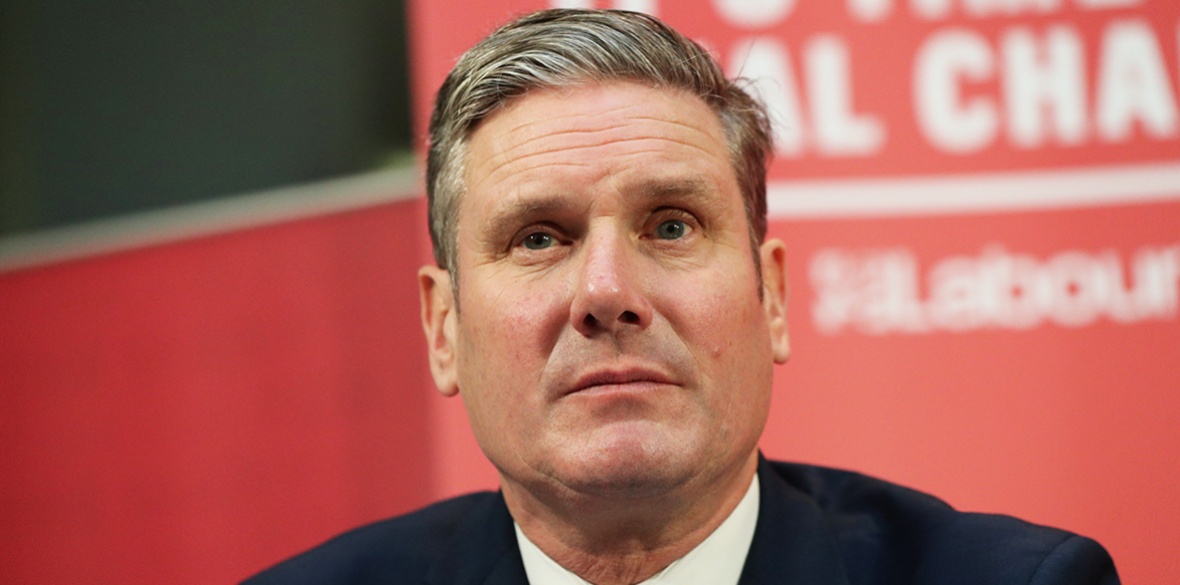This is the last article you can read this month
You can read more article this month
You can read more articles this month
Sorry your limit is up for this month
Reset on:
Please help support the Morning Star by subscribing here
A BITTERLY divided Labour meets this weekend for its first real conference since Keir Starmer took the reins.
Even he realises his leadership is in trouble. His last-minute revelation of plans to change the way the party leader is elected may be in tune with a consistent strategy of silencing and disenfranchising the membership, but he can hardly be delighted that it led to an immediate frenzy of speculation that his aides are planning to ditch him and back rightwinger Wes Streeting for the top job.
His war on the membership and alienation of affiliated unions have provoked a financial crisis.
One union — the BFAWU food workers’ union, whose profile among young people is exceptionally high because of the McStrike campaigns — is holding a recall conference while Labour’s is still running to discuss disaffiliation, because of Labour’s threat to expel its president.
These considerations — and the need for union support if he is to get his way on changing the rules — may be behind the party’s decision to kick off conference by having Angela Rayner unveil plans to strengthen workers’ rights.
These are not window-dressing. Starmer’s address to the TUC earlier this month picked up on its campaign for a new deal for workers, making a number of positive promises.
If trade unionists including the CWU’s Dave Ward pointed out that Labour’s new deal was confined to improving individual rights and ignored the importance of building collective power, Rayner now seeks to address those concerns.
The party is promising to restore sectoral collective bargaining to raise pay across whole industries. It is a demand at the heart of the Institute of Employment Rights’ manifesto for labour law, endorsed by Labour under Jeremy Corbyn. And it would make a huge difference to millions of workers and significantly strengthen trade unions.
Left attitudes to Starmer’s Labour vary. While more or less the whole left abhors his disgraceful treatment of his predecessor, the crackdown on discussion and the purges, there is less consensus on the extent to which he has jettisoned the socialist policies developed from 2015.
Thoughtful critics have pointed to the survival of many social democratic policies well to the left of pre-Corbyn Labour. Given the retreat of neoliberalism internationally with a US president who champions state intervention and unionised labour, some see potential for a new settlement.
Others note that the retreat from specifically socialist policies has been thorough.
Starmer shies away from pledges on public ownership and economic planning. Even on pay Labour’s positioning is so unambitious it is routinely outmatched by the Tories, as it was in the NHS.
Nowhere is the Labour right more fanatical than in its support for imperialism and war, and here their capture of policy has been absolute, with the party sometimes more aggressive than the Tories on the new cold war on China or trying to continue the disastrous “war on terror” despite humiliation in Afghanistan.
A socialist assessment of the state of the Labour Party should recognise three things.
One, it is not static. Policies to the left of Ed Miliband’s in 2015 reflect the achievement of Corbynism in changing the debate in Britain — even the Conservative attitude to state intervention has shifted — but should not be allowed to mask the scale of the rightward shift since last year.
Two, a world struggling through a pandemic and facing runaway climate change requires urgent, radical change and the solutions are international. We can neither afford gradualistic tinkering with the edges of capitalism nor an endless commitment to militarism and war. The Labour leadership is our enemy on both counts.
Three, actions speak louder than words. A Labour Party that devotes almost all its energy to harassing and hounding out its most active and enthusiastic activists is not sincere in any professed commitment to changing the world: it is energetically sabotaging its ability to deliver on it.












